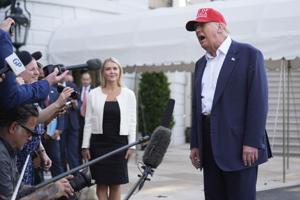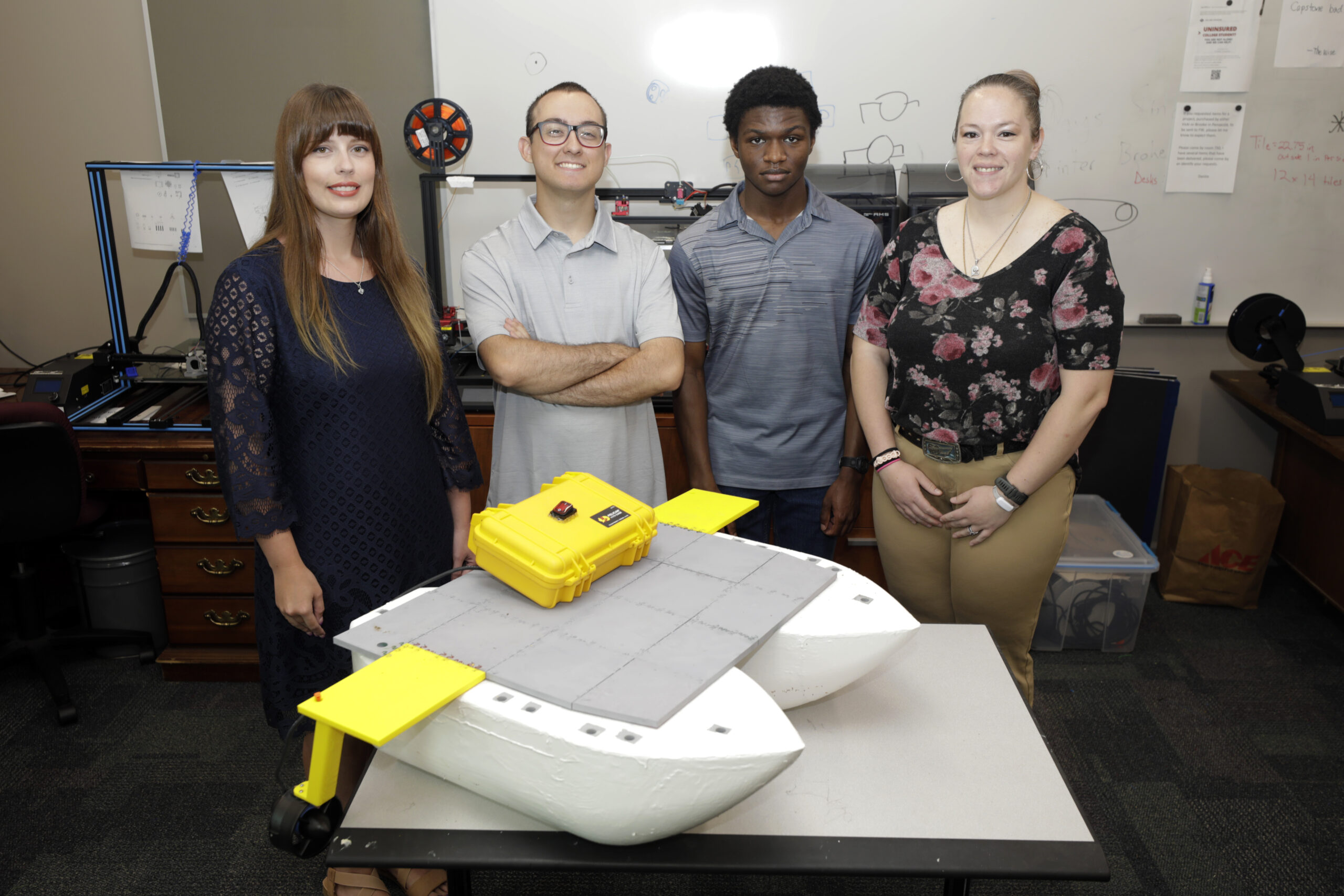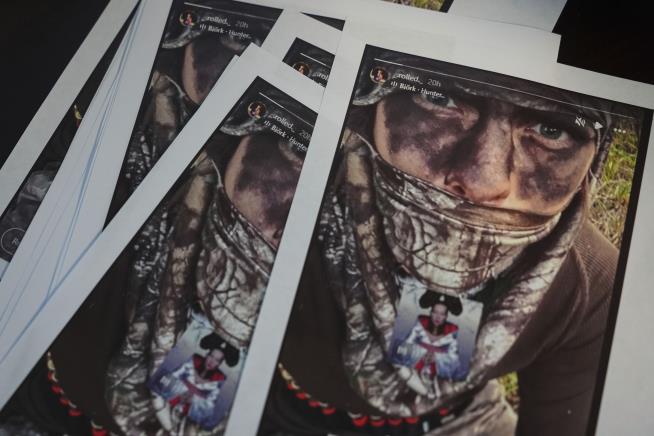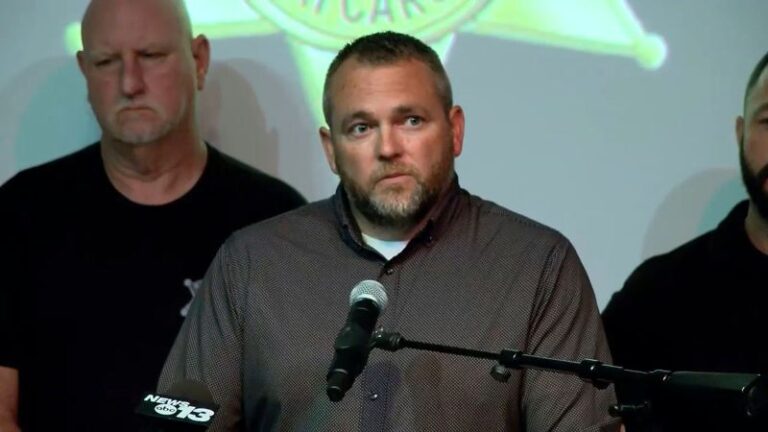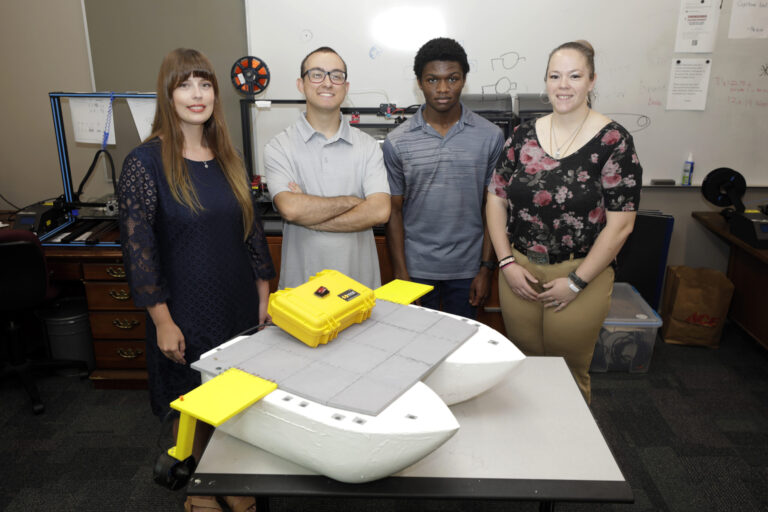A team of four University of West Florida (UWF) students in electrical and computer engineering has partnered with the Naval Surface Warfare Center Panama City Division to develop a RoboBoat kit aimed at sparking interest in marine robotics among high school students. The collaboration, which took place in Panama City, Florida, is part of a broader effort to engage young minds in STEM (Science, Technology, Engineering, and Mathematics) fields.
Dr. Damion Dunlap, the STEM Outreach Manager at the Naval Surface Warfare Center Panama City Division, spearheaded the initiative by leveraging the expertise of UWF students from the Hal Marcus College of Science and Engineering. His vision was to create an accessible and competitive RoboBoat kit for high school students. “We decided that this project would be an amazing way to help high school students become more excited about STEM in an inexpensive and cost-effective way,” said Ashley Schnaible, a senior computer engineering student involved in the project.
Building the Future: The RoboBoat Project
Under the guidance of Dr. Jeff McGuirk, a senior lecturer in electrical and computer engineering and former United States Air Force developmental engineer, the UWF team embarked on crafting the RoboBoat platform. The project, which spanned the Fall 2024 semester, included students Heather Sasser, David Laird, and Xavier Frank. Their efforts were complemented by a group of Florida Polytechnic University students who contributed to the development of computer components.
The team faced numerous challenges, experimenting with various designs and materials. Ultimately, they opted to 3D print the RoboBoat in segments using PLA filament, reinforced with multiple layers of Flex Seal for waterproofing. After successful buoyancy tests, essential components such as thrusters and a waterproof case for the battery, microcontroller, and wiring were installed. The final product operates like a standard RoboBoat, controlled via an RC remote.
Inspiring the Next Generation
The initiative is not just about building a boat; it’s about building a bridge to future careers in engineering. “This project gave us the opportunity to explore multiple ways of constructing a functioning RoboBoat kit using materials that students could obtain rather easily,” Schnaible explained. “It also gave our team the opportunity to be giant kids ourselves, having fun with the build, designing it essentially like a giant Lego set.”
For the summer following the project’s completion, Dr. Dunlap is collaborating with high school students who have secured paid internships at the Naval Surface Warfare Center Panama City Division. These students will apply lessons learned from the UWF project to construct another RoboBoat, furthering their understanding and interest in marine robotics.
Context and Broader Implications
The RoboBoat project is part of a larger trend of educational institutions partnering with industry leaders to provide hands-on learning experiences. Such collaborations are crucial in addressing the growing demand for skilled professionals in STEM fields. According to the U.S. Bureau of Labor Statistics, jobs in STEM occupations are projected to grow by 8% from 2019 to 2029, a pace much faster than the average for all occupations.
“By engaging students early and providing them with real-world applications of their studies, we are not only enhancing their educational experience but also preparing them for the workforce,” noted Dr. McGuirk.
This initiative also reflects a historical shift in educational strategies, where practical, project-based learning is increasingly favored over traditional lecture-based methods. The hands-on approach is designed to foster critical thinking, creativity, and problem-solving skills, which are essential in today’s technology-driven world.
Looking Ahead
The success of the RoboBoat project at UWF highlights the potential for similar initiatives to be replicated across other institutions and industries. As educational and industry partnerships continue to evolve, they promise to play a pivotal role in shaping the future workforce.
For more information about the Hal Marcus College of Science and Engineering, visit uwf.edu/hmcse.


